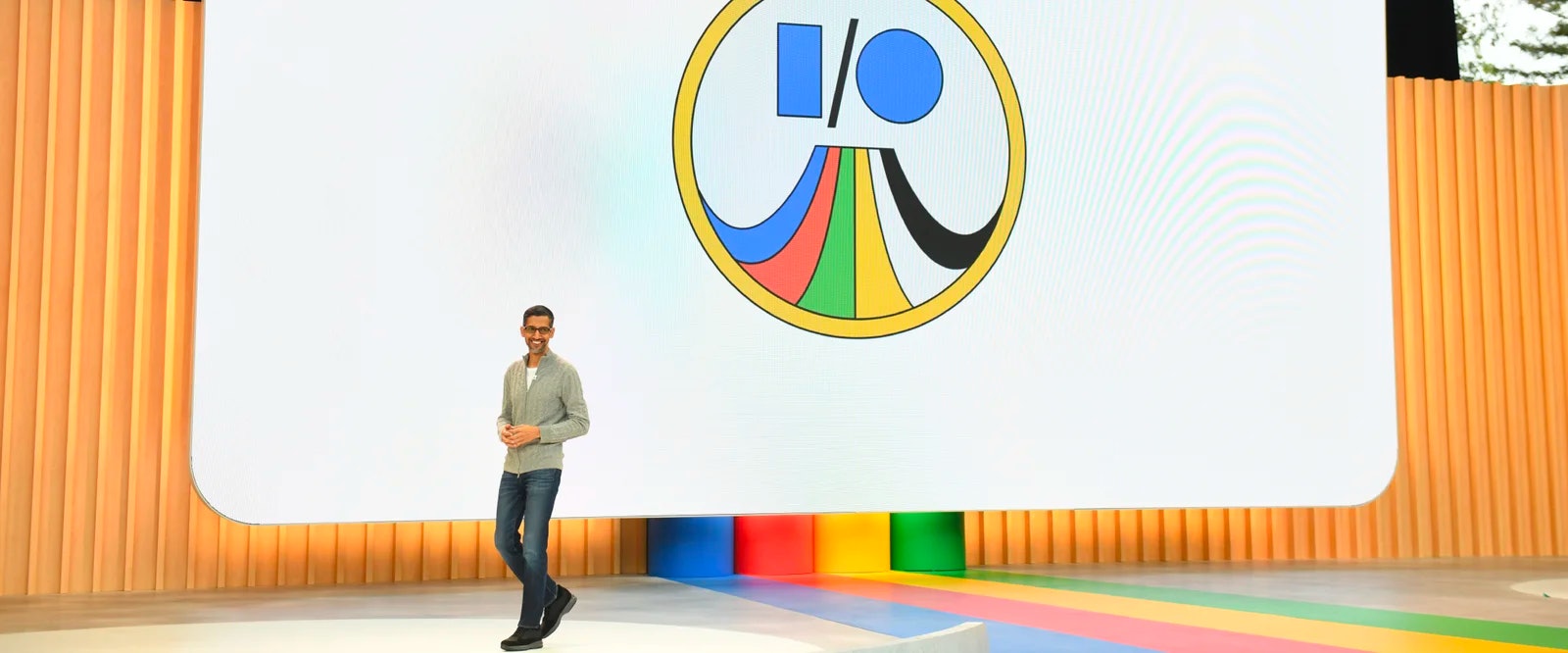
Google does a lot of things nowadays; phones, tablets, email, work, audio, spreadsheets, navigation, whatever the hell this is. But at its core, Google is still, well, Google. It’s the way you search.
After 25 years, the tech giant’s dominance in the arena of search is still unquestionable; it accounts for a gargantuan 92 percent of the search market. I mean, the word itself — Google — is literally synonymous with typing questions into a text box.
But as Google Search’s dominance has grown, and as it has continued to reshape and revolutionize our relationship with the internet, its effectiveness in connecting us with the fastest and best answers to our burning questions... well, I’d bet a whole Pixel Fold that it’d take you more than one Google search to find an answer to that one.
Big Stage, Bigger Problems
Cracks in Google Search’s armor have been growing for some time, but Google’s I/O 2023, the company’s biggest event of the year, was arguably, and ironically, the stage where, for me at least, they became most glaring.
I’m talking specifically about “AI capabilities in Search,” Google’s fairly lengthy update on how new AI is shaking up the search experience.
With the help of generative AI, Google says its Google searchers will enjoy a raft of new benefits: Searches can get more complex — think, “What's better for a family with kids under 3 and a dog, Bryce Canyon or Arches?” as opposed to “things to do with your family at Bryce Canyon.”

From there, generative AI will also assist in providing Googlers with a helpful “snapshot” — an accentuated box at the top of the page meant to highlight the most relevant information.
Shopping is also getting in on the new AI action, with a new shopping hub that aggregates reviews and helpful information about whatever you’re searching for. A search on e-bikes, for example, might help you suss out the metrics that are most important in deciding which to purchase like battery, size, speed, etc... sounds useful!
But useful though they may be, the AI features’ utility isn’t really what makes them interesting to me — it’s the way that Google talks about them.
In Google’s own explanation, its new search-focused generative AI is “taking more of the work out of searching.” Or in the case of its shopping revamp, AI is making the experience “faster” and “easier.” On Google’s own I/O stage, Cathy Edwards, Google’s VP of Engineering used the words “simple and smarter” to describe the updates.
On one hand, all of those goals are an unequivocally good thing, and on the other, they’re a bold indictment of just what Google searching has become.
Searching...
If you feel like Googling hasn’t gotten easier over the years, you’re not alone. As Google Search has exploded into the predominant form of connecting people to information, the internet and its near-infinite well of sources have ballooned into an unwieldy beast.
As the gatekeeper to those sources, Google has been met with the herculean task of deciding not only which information you see, but which information you see first — a make-or-break factor in whether a given web page turns into a cash cow or a dust-ridden antique.
And as for Google’s success in delivering the best possible experience for searchers contending with that sheer volume of sources? Well, it’s been mixed.
For years now, Google searches have been marred by ads masquerading as results, struggles with the algorithm’s propensity to promote misinformation, accusations of prioritizing its own products, and just generally poor UX.
Meanwhile, in all of its struggles, we’ve all learned to cope; having to type “Reddit” after your search query may be an effective hack for finding something worthwhile, but it’s not exactly a glowing review of Google’s ability to serve you what you need quickly.
What’s worse, in all of the atrophy of the Google Search experience, the tech giant has profited enormously off of the exact things that make finding valuable information such a nightmare. In 2022, for example, the company brought in an eye-watering $162.45 billion on search ads alone — well more than half of its overall revenue.
If it seems like maybe Google has been dragging its feet on addressing the problems that its new and improved generative AI is here to fix, there might be a reason why.
And while Google had fallen asleep at the wheel, competitors like Microsoft have decided to step in and mix up the field. Microsoft’s Bing, a next-gen chatbot-enabled search experience powered by a deep integration with OpenAI’s chatbot, ChatGPT, has all but shaken Google to its core.
I know, it’s hard to imagine a search giant as institutional as Google being rattled, even by a fellow tech giant like Microsoft, but various reports over the past few months since Bing unveiled its chatbot-centric search have suggested that’s exactly what has transpired inside Google’s hallowed AI walls.

Those reports suggest that since Microsoft has leaned into its chatbot-powered Bing, Google has been scrambling to whip up a suitable rebuttal in the form of Bard, a similar chatbot powered by Google’s own PaLM Large Language Model (LLM).
In any event, Google, judging by the massive dump of new AI features on its I/O stage, is now fully awake at its driver-seat position of internet search and is ready to do some reckoning. Hopefully, we’ll all be better off for it.
And in fairness, some of Google’s current pitfalls are innate to the massive nature of the internet we enjoy today — misinformation, for example — but some of them have been a product of Google itself.
If that’s the case, forgive me for not seeing generative AI as a bold breakthrough in creating a simpler next-gen search experience, and more as an epiphany — a tech giant taking a sober, long-overdo look at the entropic product it’s created, grabbing a broom, and deciding to finally get to work.







